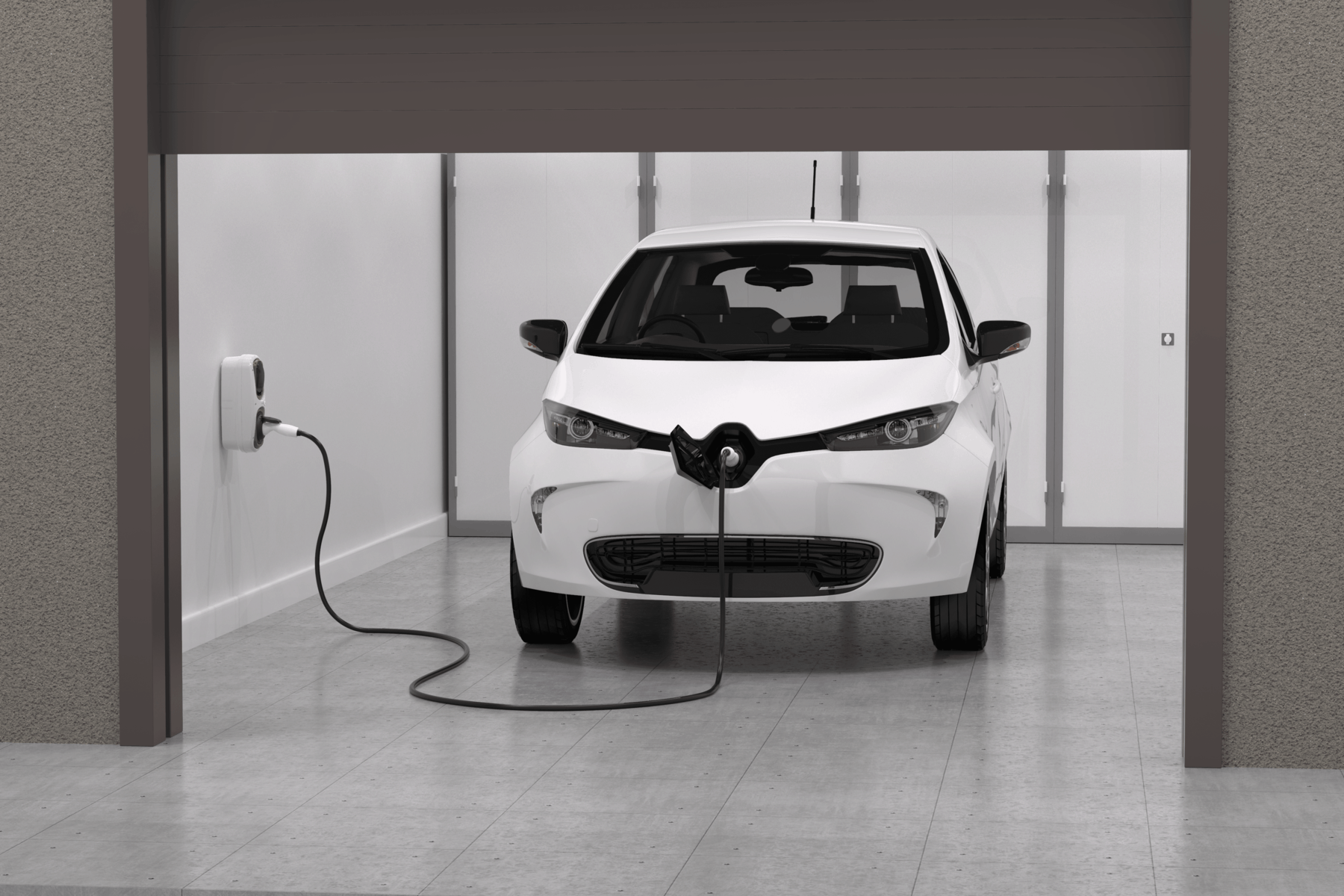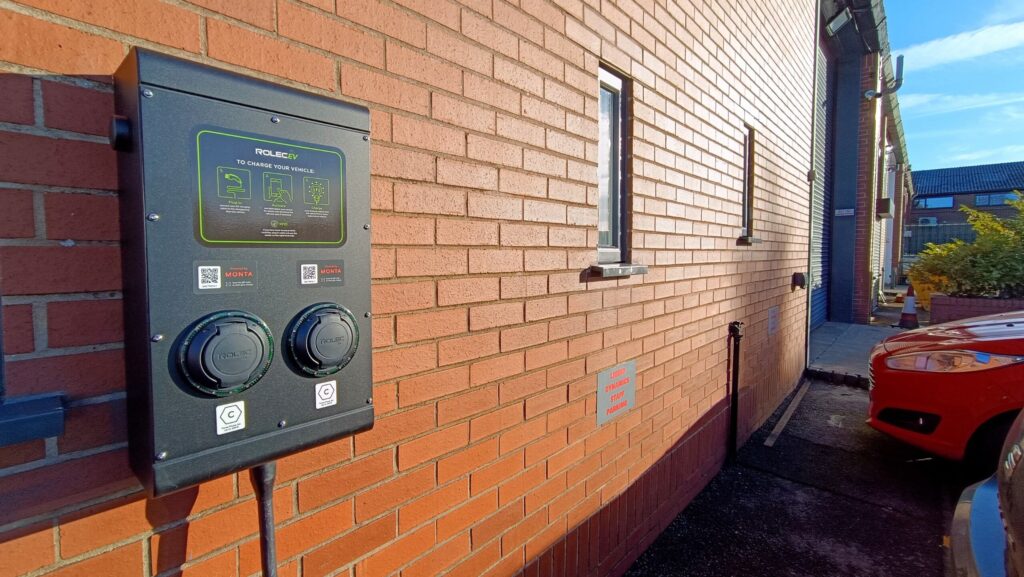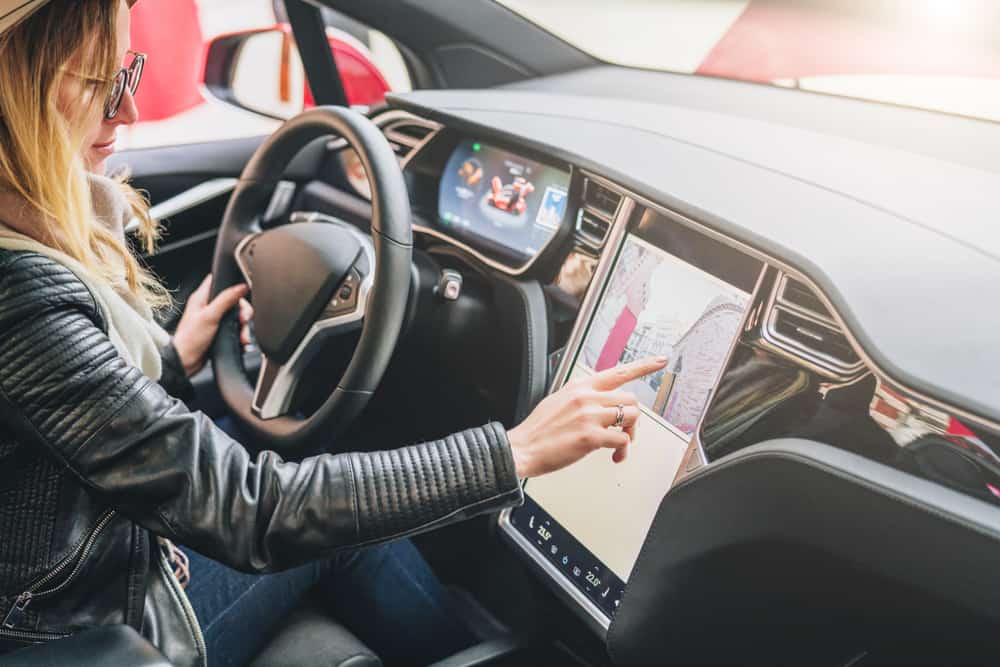Transitioning to an electric vehicle can be an overwhelming process for those who don’t know much about the vehicles and how they work. At EV Charging Company, we aim to make ownership accessible to everyone by offering a range of EV charging products for the home to suit all types of electric vehicles and their charging needs. Your workplace or business may also benefit from an EV ChargePoint, so we also offer EV ChargePoint installation for commercial use.
To decide which ChargePoint product is most suitable for you, it’s worth understanding what the different types of EVs are and how they work. There are also different forms of charger connectors depending on the electrical current being used by the charger.
Types of Electric Vehicles
The 3 main types of electric vehicles are based on the proportion of electricity needed as an energy source to power the car, ranging from battery electric vehicles (BEV) to hybrid electric vehicles (HEV).
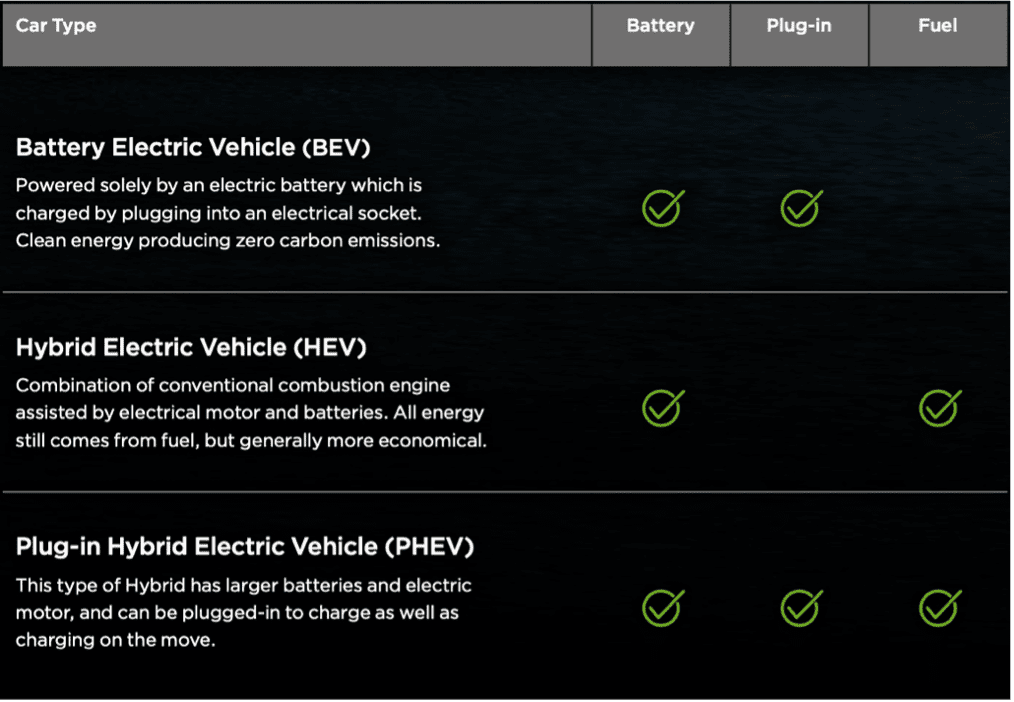
- Battery Electric Vehicle (BEV)
Powered solely by an electric battery which is charged by plugging into an electrical socket. Clean energy producing zero carbon emissions.
- Hybrid Electric Vehicle (HEV)
Combination of conventional combustion engine assisted by electrical motor and batteries. All energy still comes from fuel, but generally more economical. - Plug-in Hybrid Electric Vehicle (PHEV)
This type of Hybrid has larger batteries and an electric motor and can be plugged in to charge as well as charge on the move.
Types of Charging Connectors
EV Chargers come in two forms, AC or DC, based on the type of electrical current input it uses. Both forms of chargers have 2 main types of connectors with varying numbers of pins within the plug.
AC (Alternating Current) chargers’ main types of connectors:
- Type 1: A five-pin plug, which is common for American & earlier Asian vehicles, it’s a single-phase plug and can charge at a speed of up to 7.4kW.
- Type 2: A seven-pin plug, typically found on most European and Asian vehicles from 2018 onwards, it’s a triple-phase plug, enabling you to charge your car at a speed of up to 22kW at home and up to 43kW at public charging stations.
DC (Direct Current) Chargers’ main types of connectors:
- CCS2: This is an enhanced version of the AC Type 2 plug, with two additional power contacts for rapid charging. It supports AC and DC charging and allows up to 350kW charging speed.
- CHAdeMO: This connector allows high charging capacities as well as bidirectional charging. Currently, Asian car manufacturers are developing EVs with a CHAdeMO plug, allowing charging up to 400kW.
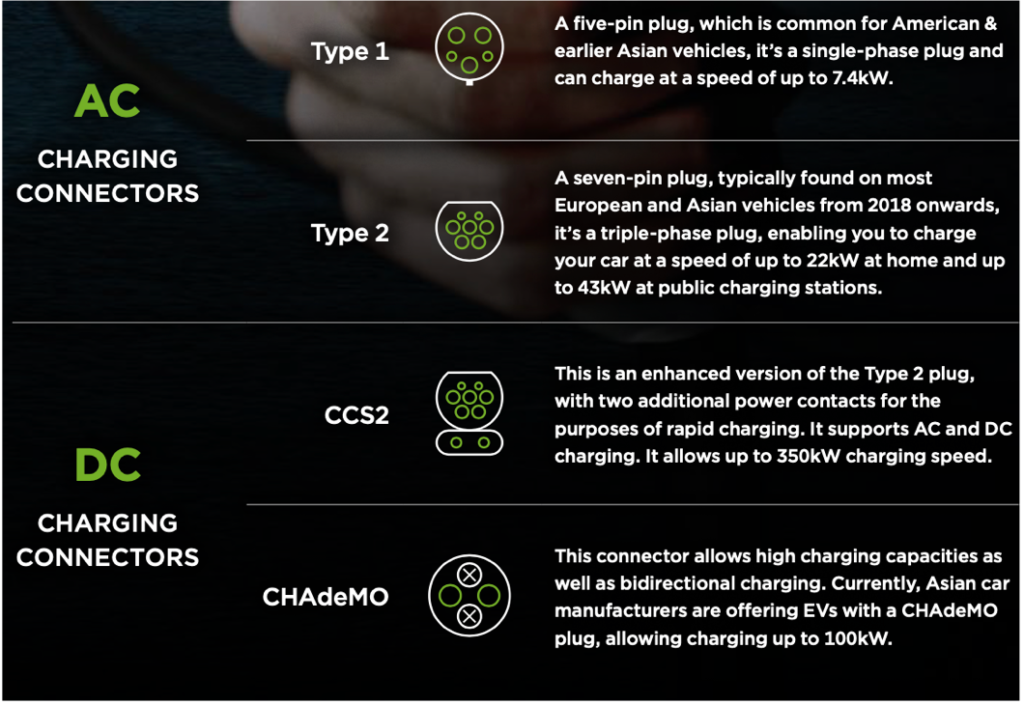
It’s worth noting that the type of charger connector being used may vary depending on the country or specific vehicle in question. China has its own standards for AC and DC charging so developed a GB/T charger connector, whilst North America also has a CCS1 charger which is an enhanced version of the Type 1 AC plug. Tesla is also notorious for having its own charging plug, most like the CCS2 plug, only suitable for charging Tesla vehicles.
Now that you have more clarity on the different types of electric vehicles and the different charging connectors that can be used to power them, you may have more clarity on the type of charging product that will work best for your and your vehicle’s needs. Whether you are looking for a commercial or domestic ChargePoint, EV Charging Company will have the ideal product for you.
Let EV Charging Company help you start your EV journey today. Contact our team of experts on 01625 569574 or email [email protected]
